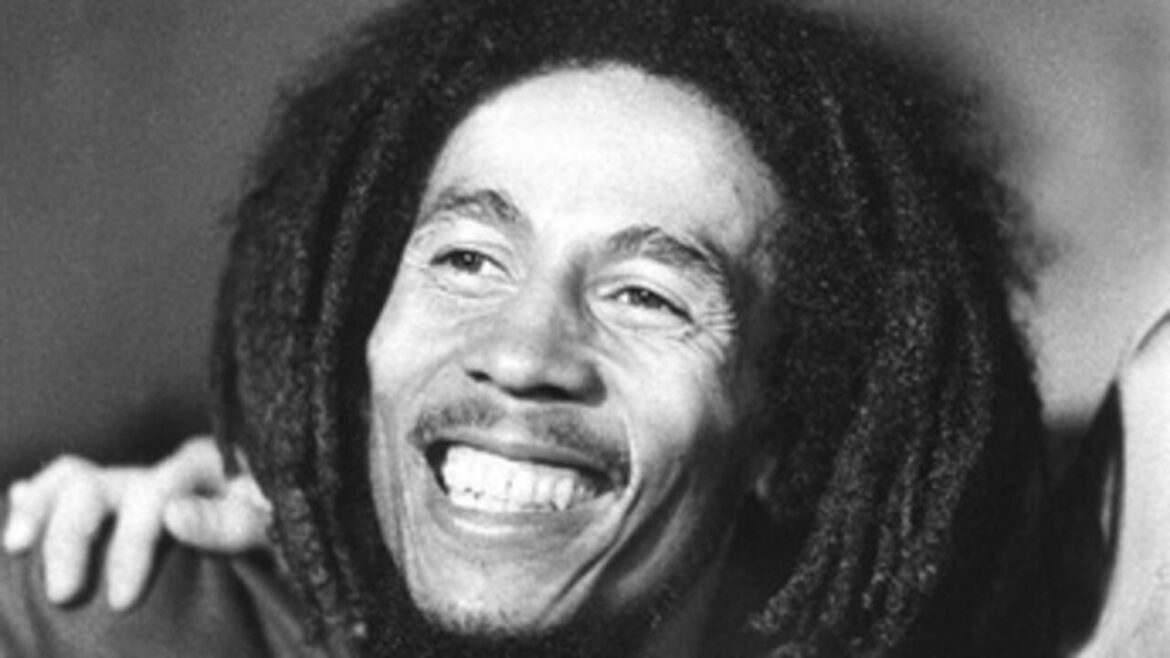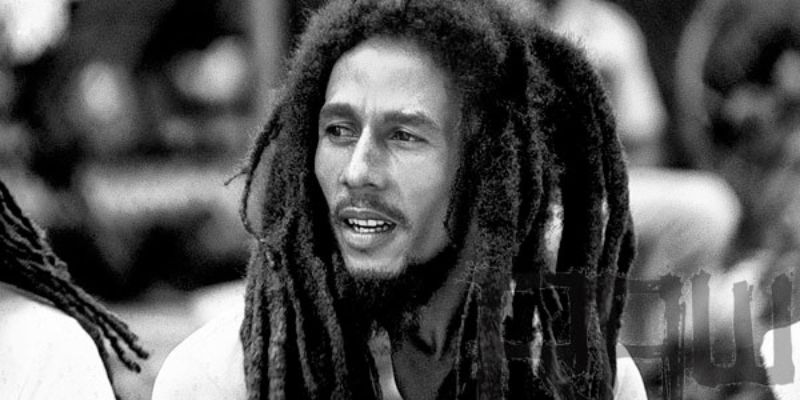
Bob Marley: The Legend of Reggae
Bob Marley was born Robert Nesta Marley and is an enduring symbol of reggae music and a cultural icon. His contributions to music, politics, and social change transcended borders, making him one of the most influential musicians of the 20th century. Marley’s powerful lyrics, fused with the pulsating rhythms of reggae, conveyed messages of love, unity, and resistance to oppression, which continue to resonate worldwide. This essay delves into Bob Marley’s life, musical career, philosophy, and lasting impact on global culture.
Early Life and Introduction to Music
Bob Marley was born on February 6, 1945, in Nine Mile, Saint Ann Parish, Jamaica. His father, Norval Sinclair Marley, was a white Jamaican of English descent, while his mother, Cedella Booker, was a black Jamaican. Marley’s mixed heritage became a significant aspect of his identity, shaping his worldview and influencing the themes of racial unity that would later dominate his music.
Growing up in rural Jamaica, Marley experienced firsthand the poverty and racial tensions that were common in post-colonial Jamaica. His early exposure to Rastafarianism, a spiritual movement that combined elements of Christianity with a belief in the African diaspora’s return to their homeland, profoundly influenced his philosophy. The movement’s messages of peace, love, and resistance to Babylon (a metaphor for Western imperialism and oppression) resonated deeply with Marley, who would later become one of Rastafarianism’s most visible proponents.
At the age of 12, Marley moved to the Trenchtown neighborhood of Kingston, where he was introduced to music through local soundsystem culture. He formed a friendship with Neville “Bunny” Livingston (later Bunny Wailer) and Peter Tosh, who would become his lifelong collaborators. Together, they founded a band called “The Wailing Wailers” in the early 1960s, a group that would later evolve into Bob Marley and The Wailers, marking the beginning of Marley’s rise to fame.
The Rise of Reggae and Bob Marley’s Musical Career
Marley’s music career took off in the 1960s as the genre of reggae began to take shape. Originally influenced by ska and rocksteady, reggae emerged as a slower, bass-heavy music with socially conscious lyrics. The Wailers’ early work was aligned with these evolving genres, producing songs with local appeal. Their big breakthrough came in 1964 with the song “
,” which addressed the violence and unrest in Kingston’s ghettos.
By the late 1960s and early 1970s, Bob Marley and The Wailers had transitioned from local stars to international recognition. Their partnership with producer Lee “Scratch” Perry and their association with the Island Records label, headed by Chris Blackwell, helped elevate their music to a global audience. Marley’s writing evolved during this period as he blended his love of melody with deep-rooted political and spiritual themes. Songs like “Trenchtown Rock,” “Soul Rebel,” and “Duppy Conqueror” showcased his burgeoning talent.
It wasn’t until the release of the album Catch a Fire in 1973 that Bob Marley and The Wailers began to receive international attention. This album was a turning point in Marley’s career, blending roots reggae with rock influences to appeal to wider audiences. Following this, Burnin’ (1973) featured the timeless track “I Shot the Sheriff,” which Eric Clapton later covered, propelling Marley’s music into the mainstream.
Spiritual and Political Influences
At the heart of Marley’s music was a powerful fusion of Rastafarian spirituality and political activism. Deeply influenced by Rastafarian tenets, Marley viewed his music as a medium for communicating ideas about faith, justice, and freedom. His lyrics frequently referenced biblical themes and Rastafarian beliefs, often positioning himself as a messenger of Jah (God) who was responsible for awakening people to the truths of the world.

Marley also used his platform to address political struggles, both in Jamaica and internationally. He was outspoken about the inequalities faced by the poor, the corruption of governments, and the destructive legacy of colonialism. His album Rastaman Vibration (1976) featured songs like “War,” which used a speech from Ethiopian Emperor Haile Selassie to call for peace and racial equality. Similarly, Exodus (1977) symbolized a journey towards spiritual and political emancipation, with songs like “One Love” promoting unity and peace, while “Exodus” urged people to seek freedom from oppression.
Marley’s activism was not just confined to his lyrics. In 1976, he survived an assassination attempt in Jamaica, widely believed to have been politically motivated. Despite being shot, Marley performed just two days later at the Smile Jamaica Concert, a peace event aimed at uniting Jamaica’s warring political factions. This act of defiance only cemented his status as a revolutionary artist who stood by his principles.
Global Success and Legacy
As Marley’s fame grew, so did his influence. His 1977 album Exodus was a critical and commercial success, marking his ascendancy as an international superstar. Tracks like “Jamming,” “Three Little Birds,” and “Waiting in Vain” became instant hits, and the album remained on the UK charts for 56 consecutive weeks. Marley followed this with Kaya (1978), a more introspective album that focused on love, peace, and happiness, yet still maintained the social consciousness that defined his work.
One of Marley’s most celebrated albums, Uprising (1980), captured the essence of his spirituality and activism, with songs like “Redemption Song” calling for self-liberation and empowerment. Tragically, by the time of its release, Marley had been diagnosed with cancer, which had spread from his toe to his brain. He continued to tour despite his declining health, performing for massive crowds around the world.
Though his life was tragically short, his impact on music and culture was monumental. In recognition of his contributions, Marley was posthumously awarded Jamaica’s third-highest honor, the Order of Merit. His albums continued to sell millions of copies worldwide, and his image as a peace-loving, freedom-fighting, Rastafarian musician became iconic.
The Philosophy of “One Love”
One of the most enduring messages from Bob Marley‘s work is the concept of “One Love,” a call for unity, peace, and compassion that transcends race, class, and nationality. For Marley, music was not just a form of entertainment; it was a tool for social change, a way to uplift people and bring them together. His vision of a world united by love and understanding is encapsulated in songs like “One Love,” “Get Up, Stand Up,” and “No Woman, No Cry,” which continue to inspire generations.
His spiritual and political message spread far beyond the borders of Jamaica, influencing movements for justice and equality across the globe. Marley’s advocacy for the oppressed resonated with anti-apartheid activists in South Africa, civil rights movements in the United States, and countless others fighting for freedom and human dignity.
Legacy and Influence
Bob Marley’s legacy is immeasurable. He is often credited with bringing reggae music to the world stage and establishing it as a global genre. But beyond the music, Marley’s influence extended into fashion, culture, and politics. His embrace of Rastafarianism helped bring the movement into the mainstream, while his messages of peace, love, and resistance have continued to inspire political movements, social justice efforts, and artists across various genres.
Artists like Lauryn Hill, Damian Marley (his son), and others have carried on his musical and social legacy. Marley’s image, music, and philosophy of “One Love” endure, reminding the world of the power of music as a force for change.
Bob Marley passed away on May 11, 1981, at the age of 36.
In the decades since his death, Bob Marley remains a symbol of freedom and unity, a visionary artist whose music and message continue to transcend generations and borders.
Check out Bob Marley on Amazon.
.


Pingback: Aston Family Man Barrett died February 3, 2024. - Dead Musicians
Pingback: Reggae Legend Bunny Wailer died March 2, 2021 - Dead Musicians
Pingback: Johnny Nash died October 6, 2020 - Dead Musicians
Pingback: Singer-songwriter Bobby Caldwell died March 14, 2023 - Dead Musicians
Pingback: Musician and activist Sinéad O'Connor died July 26, 2023 - Dead Musicians